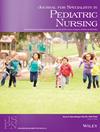Culture, religion, language and the assessment and management of children's pain by expatriate nurses in Saudi Arabia: A qualitative study
Abstract
Purpose
Unrelieved pain among hospitalized children is a common problem that affects all aspects of children's health and their quality of life. Cultural and language differences between nurses and patients have been shown to impact the quality and safety of nursing care and management for children with pain. The aim of this study was to identify the cultural factors, barriers, and facilitators impacting the assessment and management of children's pain by expatriate nurses in Saudi Arabia.
Design and Methods
A qualitative descriptive design was employed in this study. A sample of 16 nurses was conveniently recruited and interviewed through face-to-face semistructured interviews. Each interview lasted between 30 and 60 min and was audio-recorded. Content analysis was used to analyze the transcripts. Transcripts were carefully read, significant statements were highlighted, coded, categorized, and clustered thematically.
Results
Three main themes were identified, namely, (I) low priority of children's pain, (II) culture and religious challenges, and (III) communication challenges.
Practice Implications
Cultural and language differences described by expatriate nurses hindered their care of children with pain. A systematic education for expatriate nurses, children, and families is urgently needed to enhance inter/cross-cultural understandings and improve childcare in Saudi Arabia. This study identifies the unique challenges faced by expatriate nurses in Saudi Arabia. The findings reveal how a lack of knowledge about cultural values and beliefs can lead to misunderstandings and conflicts between nurses, children, and families and can have an impact on childcare and pain. It also highlights the need to improve pain management practices in multicultural healthcare settings, similar to those of Saudi Arabia and neighboring Arab nations, and across the globe.

 求助内容:
求助内容: 应助结果提醒方式:
应助结果提醒方式:


